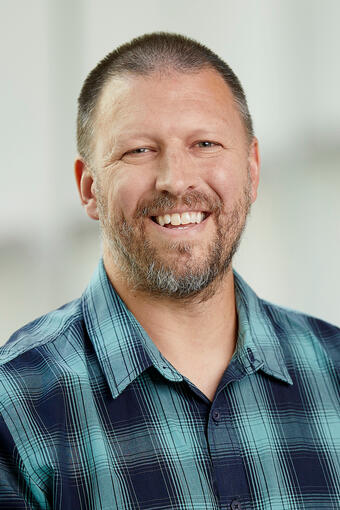Scott Abella
Biography
Scott Abella is an assistant professor in restoration ecology with the School of Life Sciences at the University of Nevada Las Vegas. His areas of expertise include fire management, ecological restoration, plant ecology, and habitat-wildlife relationships. He also owns the consulting firm Natural Resource Conservation LLC.
Abella has experience working in numerous North American ecosystems including eastern forests, Midwestern prairies and savannas, wetlands, western forests, and deserts, as well as internationally in desert restoration. He specializes in implementing ecological science that facilitates conserving biodiversity and natural resources critical to society.
His expertise has been requested by all levels of governmental organizations in the U.S., non-profits, private companies, and international organizations such as the United Nations. At the University of Nevada Las Vegas, he teaches courses in biology and restoration ecology and works with a diverse group of undergraduate and graduate students to actively engage students in helping meet conservation science project goals.
He has published over 100 peer-reviewed scientific articles and 50 outreach articles, given 135 symposium or invited presentations, been featured over 35 times in media outlets for conservation stories and projects with students, and received over 40 grants and contracts. In 2015, he published the book Conserving America’s National Parks, corresponding with the 2016 Centennial of the National Park Service.
Education
- Ph.D. Forest Science, Northern Arizona University
- M.S. Forest Resources, Clemson University
- B.S. Natural Resources Management, Grand Valley State University
Related Links
Scott Abella In The News
Articles Featuring Scott Abella

Saving Tribal Heritage By Planting Roots
Native American master's student Ka-Voka Jackson is working to protect the environment and preserve her Hualapai culture.

UNLV Students Lead Las Vegas Wash Volunteer Planting Party Jan. 21 & 22
More than a dozen students will partner with the National Park Service and other groups on a restoration project to add native plants, protect shoreline, and boost wildlife.

Our National Parks Amidst Global Change
As the National Park Service celebrates its 100th anniversary, UNLV professor Scott Abella explores the conservation challenges officials face.
Happy 100th, National Park Service
UNLV professor Scott Abella on why national parks matter more than ever to everyone from foodies to Civil War historians to the average Joe sitting in bumper-to-bumper traffic.
